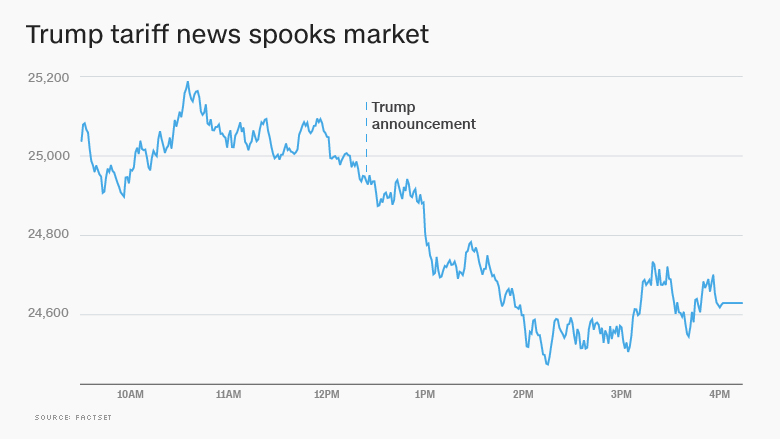Geopolitical Showdown: A Military Base In The US-China Power Struggle

Table of Contents
The Strategic Importance of Military Bases in the Indo-Pacific
The Indo-Pacific region has become the epicenter of the US-China power struggle, with military bases serving as vital instruments of power projection and deterrence. The strategic placement of these bases directly impacts the balance of power and influences regional stability.
US Military Bases as a Deterrent
US military bases in the Indo-Pacific play a crucial role in containing Chinese expansionist ambitions in the South China Sea and beyond. These bases serve as forward operating locations, allowing for rapid response to potential threats and projecting US power throughout the region.
- Guam: This strategically located island territory hosts significant air and naval forces, providing a crucial staging ground for operations in the western Pacific. Its capabilities include long-range air power and the ability to deploy naval assets quickly.
- Japan: US bases in Japan, such as those at Yokota Air Base and Kadena Air Base, provide critical air power and intelligence capabilities, crucial for monitoring Chinese military activities.
- Philippines: The strengthening of the US military presence in the Philippines, including increased rotational deployments and access to facilities, significantly enhances deterrence capabilities in the South China Sea region.
These bases, with their advanced military capabilities and strategic locations, contribute significantly to the US's ability to deter Chinese aggression and maintain regional stability. Their presence is a clear demonstration of US commitment to the security of its allies in the region.
China's Expanding Military Footprint
China's increasingly assertive foreign policy is reflected in its expansion of military bases and facilities throughout the region, particularly in the South China Sea. These actions challenge the existing regional order and raise concerns about freedom of navigation and regional stability.
- Artificial Islands: China's construction of artificial islands in the South China Sea, equipped with military infrastructure, significantly alters the geopolitical landscape. These bases enhance China's power projection capabilities and assert its claims in disputed waters.
- Coastal Bases: China has also modernized and expanded its coastal military bases, providing enhanced capabilities for naval operations and air defense.
- Djibouti Base: China's only overseas military base, located in Djibouti, extends its reach into the African continent, allowing it to project power into a strategically important region and potentially challenge existing US influence.
This expanding Chinese military footprint directly challenges US interests and necessitates a robust response, underscoring the critical role of strategically placed US military bases in maintaining a balance of power.
The Arms Race and Technological Advancement
The competition between the US and China extends to a significant arms race, fueled by rapid technological advancements in weaponry. The development and deployment of advanced weapons systems, many stationed at strategically located military bases, further intensifies the US-China power struggle.
- Hypersonic Weapons: The development and testing of hypersonic weapons by both the US and China adds a new layer of complexity to the strategic equation, impacting the effectiveness of existing defensive systems and necessitating upgrades to military bases.
- Advanced Fighter Jets: Both countries are investing heavily in advanced fighter jets and other airpower capabilities, with these advancements often deployed at critical military bases to maintain air superiority.
- Cyber Warfare: The increasing reliance on technology also means an increase in cyber warfare capabilities, which makes securing military base networks and information a critical element in the overall strategy.
This arms race further emphasizes the critical importance of strategically located bases, which serve as platforms for deploying and maintaining these advanced weapons systems, impacting the overall balance of power and potentially influencing the risk of escalation.
Economic and Diplomatic Implications of Military Base Positioning
The positioning of military bases doesn't just affect military strategy; it also has significant economic and diplomatic implications, profoundly influencing the US-China power struggle.
Economic Leverage and Trade Disputes
The strategic location of military bases can significantly influence economic leverage and trade negotiations between the US and China. The ability to control or influence crucial trade routes, access to resources, and the potential imposition of economic sanctions are all impacted by the presence of military bases.
- Trade Routes: Military bases near key shipping lanes provide the ability to monitor and potentially disrupt trade, giving a strategic advantage in economic negotiations.
- Resource Access: Bases near resource-rich areas can influence access to those resources, providing economic leverage in trade disputes.
- Economic Sanctions: The threat of using military force or imposing blockades can be used to exert pressure during economic sanctions or trade disputes.
The interplay between military power and economic influence is a crucial aspect of the US-China power struggle, with military bases playing a critical role in shaping the economic landscape.
Diplomatic Alliances and Regional Stability
Military bases play a vital role in fostering and maintaining diplomatic alliances, directly influencing regional stability and the broader geopolitical landscape. The presence of US bases strengthens alliances with partner nations, providing a counterbalance to China’s growing influence.
- Security Guarantees: The presence of US military bases provides a security guarantee to allies in the region, strengthening diplomatic ties and deterring aggression.
- Joint Military Exercises: Regular joint military exercises involving US forces and allied nations based around these facilities enhance interoperability and reinforce military cooperation.
- Intelligence Sharing: Close proximity and collaborative efforts facilitate the sharing of intelligence information, allowing for better threat assessment and coordination in responding to regional challenges.
These bases, therefore, are not just military installations; they are essential components of a broader diplomatic strategy, aimed at maintaining regional stability and countering China's foreign policy objectives.
Future Scenarios and Potential for Conflict
The complex interplay of military bases in the US-China power struggle creates a high-stakes environment with the potential for both escalation and de-escalation. Understanding potential scenarios and developing strategies for conflict mitigation is crucial.
Escalation and De-escalation Strategies
Several scenarios could lead to escalation in the region, including incidents involving naval vessels in contested waters, cyberattacks targeting critical infrastructure, or accidental clashes. De-escalation strategies, such as clear communication channels, confidence-building measures, and crisis management protocols, are essential to prevent miscalculations and unintended consequences.
- Accident Risk: The potential for accidents or miscalculations, particularly in contested waters like the South China Sea, is high and could quickly spiral into a wider conflict.
- Cyber Warfare: The vulnerability of military bases to cyberattacks and the potential for retaliatory actions underscore the need for robust cybersecurity measures.
- Misinterpretation of Actions: Misinterpretations of military movements or deployments could easily lead to accidental escalations.
The Role of International Law and Diplomacy
International law and diplomacy play a vital role in managing the tensions related to military bases and the wider US-China power struggle. However, the effectiveness of these tools is limited by the willingness of all parties to adhere to international norms and engage in good-faith negotiations.
- UNCLOS: The United Nations Convention on the Law of the Sea (UNCLOS) provides a framework for regulating maritime activities, but its effectiveness depends on the adherence of all parties involved.
- ASEAN's Role: The Association of Southeast Asian Nations (ASEAN) plays a vital role in mediating disputes in the region, but its influence is constrained by the complexities of the geopolitical landscape.
- Bilateral Negotiations: Direct bilateral negotiations between the US and China remain essential, despite their complexities, for managing disputes and preventing escalation.
While international law and diplomacy offer important tools for de-escalation and conflict resolution, their effectiveness depends on the political will of all actors involved in this complex geopolitical game.
Conclusion
The strategic placement of military bases is undeniably a critical element of the ongoing US-China power struggle. The bases' locations, capabilities, and the technological advancements driving the arms race significantly impact regional stability, economic leverage, and the ever-present risk of conflict. Understanding the complexities of this geopolitical showdown—from the role of US military bases as deterrents to China's expanding military footprint, and the potential for escalation or de-escalation—is crucial. The economic and diplomatic ramifications, along with the limitations and potential of international law and diplomacy, shape the future of this critical relationship. Understanding the strategic placement of military bases and their impact on international relations is vital to comprehending future global events. Stay informed about this geopolitical showdown and its implications for global stability by continuing to research the US-China power struggle and the strategic placement of military bases.

Featured Posts
-
 Amanda Seyfrieds Unfiltered Take On Nepo Baby Debate
Apr 26, 2025
Amanda Seyfrieds Unfiltered Take On Nepo Baby Debate
Apr 26, 2025 -
 Kendrick Lamar Fans React To Expensive Hampden Concert Tickets
Apr 26, 2025
Kendrick Lamar Fans React To Expensive Hampden Concert Tickets
Apr 26, 2025 -
 Los Angeles Palisades Fire A List Of Celebrities Who Lost Properties
Apr 26, 2025
Los Angeles Palisades Fire A List Of Celebrities Who Lost Properties
Apr 26, 2025 -
 Lab Owner Admits To Faking Covid 19 Test Results During Pandemic
Apr 26, 2025
Lab Owner Admits To Faking Covid 19 Test Results During Pandemic
Apr 26, 2025 -
 Stock Market Reaction Impact Of Chinas Economic Plans And Dow Futures Volatility
Apr 26, 2025
Stock Market Reaction Impact Of Chinas Economic Plans And Dow Futures Volatility
Apr 26, 2025
Latest Posts
-
 The Significance Of Ariana Grandes New Hair And Tattoos
Apr 27, 2025
The Significance Of Ariana Grandes New Hair And Tattoos
Apr 27, 2025 -
 A Professional Look At Ariana Grandes Latest Style Update
Apr 27, 2025
A Professional Look At Ariana Grandes Latest Style Update
Apr 27, 2025 -
 Ariana Grandes Transformation Professional Styling And Body Art
Apr 27, 2025
Ariana Grandes Transformation Professional Styling And Body Art
Apr 27, 2025 -
 Get Professional Help Understanding Ariana Grandes Style Choices
Apr 27, 2025
Get Professional Help Understanding Ariana Grandes Style Choices
Apr 27, 2025 -
 Hair And Tattoo Transformations Ariana Grandes Bold New Image
Apr 27, 2025
Hair And Tattoo Transformations Ariana Grandes Bold New Image
Apr 27, 2025
